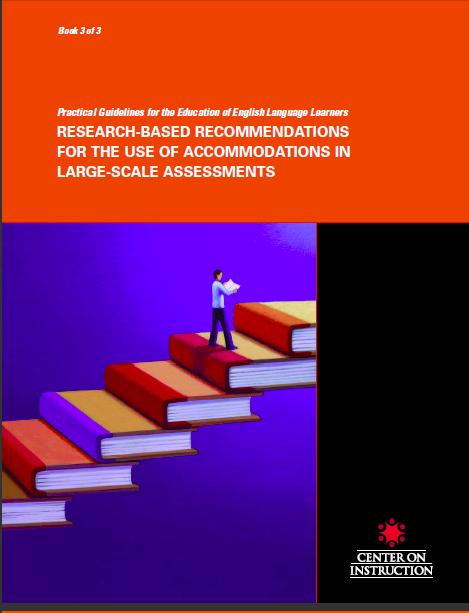Practical Guidelines for the Education of English Language Learners: Research-Based Recommendations for the Use of Accommodations in Large-Scale Assessments
Developed by Center on Instruction
Published: 11/9/2007 5:30 PM

|
This book is the third in a series of three Practical Guidelines for the Education of English Language Learners from the Center on Instruction. NCLB has increased awareness of the academic needs and achievement of ELLs as schools, districts, and states are held accountable for teaching English and content knowledge to ELLs. ELLs present a unique set of challenges to educators because of the central role played by academic language proficiency in the acquisition and assessment of content-area knowledge. This document focuses particularly on research-based recommendations on the use of accommodations to increase the valid participation of ELLs in large-scale assessments.
In November 2012, the Center on Instruction released an updated version of this book, entitled Practical Guidelines for the Education of English Language Learners: Research-based Recommendations for the Use of Accommodations in Large-scale Assessments/2012 Technical Update with Revised Recommendations.
A Professional Development PowerPoint is also available to supplement the content of the original Book 3. The detailed slides and speaker notes summarize and augment the information contained in the book and may be used to provide professional development during inservice training to educators teaching in the elementary, middle, and secondary grades.
David Francis presented an overview of the series at the LEP Partnership meeting in October 2006. The PowerPoint presentation is available here. A podcast of the presentation is available here.
|
Files available for this resource:
This resource pertains to the following topics:
- English Language Learning
- Special Populations
- Research: Meta-analyses and Summaries
- PD Modules and Training Materials
- Professional Development Events
- Instructional Practice
